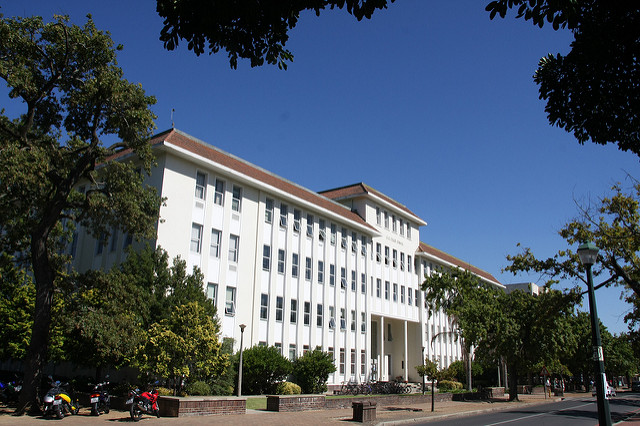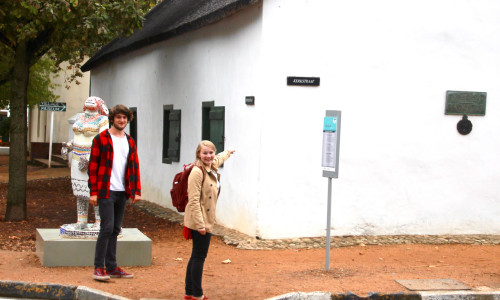Theologist wins prize for promoting Afrikaans
-
 Stellenbosch university. Photo: Keso S on Flickr
Stellenbosch university. Photo: Keso S on Flickr
Radboud Theology professor Jan van der Watt wins a prestigious South African science prize this year, though not specifically in his own field of study. The committee awards him the prize for his contribution to Afrikaans as scientific language, both nationally and internationally. Afrikaans is one of South Africa's official languages.
‘I do not write in Afrikaans to win prizes. That makes this one extra special to me’, says Theology professor Jan van der Watt, who already received several other prizes for work in his own field. ‘It is my mother tongue and very important to me.’ At the end of May, he will fly to South Africa to receive his prize, which he shares with one other scientist, at Stellenbosch University. ‘It was explained to me that some of the reasons why they awarded me this is the significance of the articles and books I wrote in Afrikaans, the several Bible translation projects into Afrikaans that I was part or editor of, and my efforts to assist in exposing Afrikaans theologians to the international scientific world’, he says.
Van der Watt helps to make South African science its way into the rest of the world.
On top of that, Van der Watt tries to make international research more available for South African scholars, ministers and others who are interested. ‘Books by important international scientists can cost up to 200 euros, which means that many South Africans and even libraries simply cannot afford it’, he says. ‘I have approached many leading theologians to offer their research to be translated into Afrikaans to be published in South African journals. That way, people in South Africa may also have the benefit of their knowledge.’ In his work as an editor the series ‘Theology in Africa’, published by a German publisher, LIT Verlag, he also works the other way around, publishing South African research internationally: ‘That way, South African science makes its way into the rest of the world.’
Afrikaans is one of the eleven official languages in South Africa, and it originated from Seventeenth-century Dutch. According to Van der Watt, a reason why Dutch became the main language of the settlers in South Africa, is that the Dutch women also immigrated to South Africa. ‘There were just as many Germans, but they were mostly men. They married Dutch women and the women raised their children in Dutch. After that, the language was influenced by all kinds of languages, but stayed rooted in Dutch.’
Promotions
Radboud University has warm links with the University of Stellenbosch and several other universities in South Africa with a constant exchange of scholars and students. In this framework van der Watt is also responsible for a Radboud PhD program in which close to 25 South Africans are researching. Several already successfully completed their PhD research with the aid of the capacity building program of the International Office. ‘It’s good to expose them to Dutch science, and people in The Netherlands to scientists from South Africa’. Van der Watt also supervised PhD students (of whom 45 already completed their research successfully), from 12 other countries around the world.
Van der Watt will share the prize money of 500.000 rand (about 35,000 euro) with the other winner, and is not sure what he is going to do with the money yet. ‘I will probably use it for more research projects in Afrikaans.’

